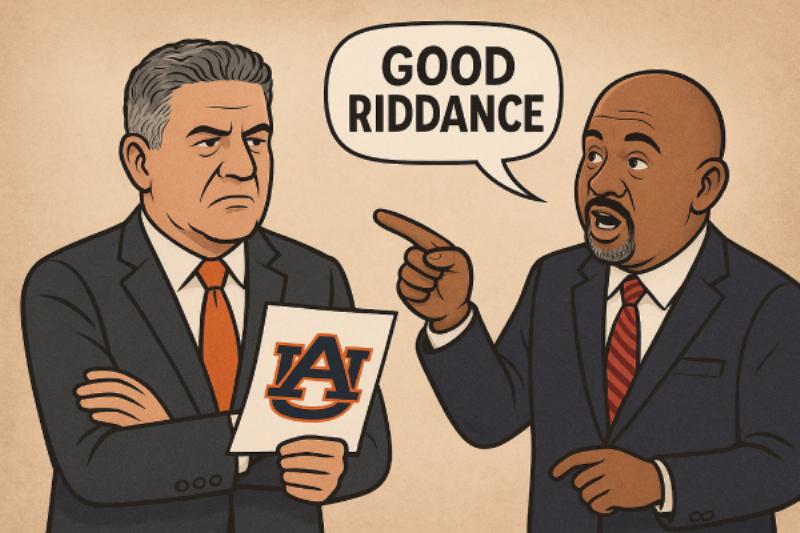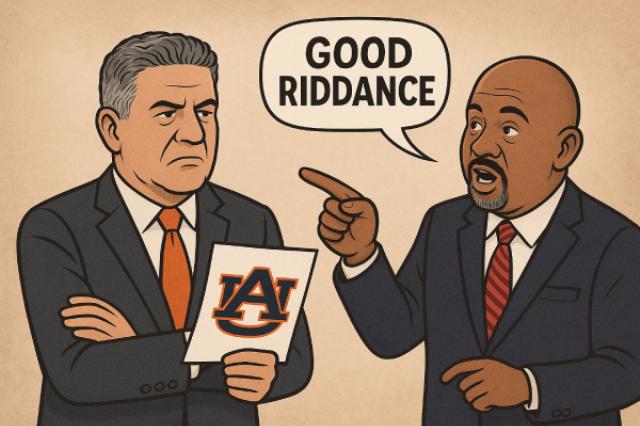


When Auburn men’s basketball coach Bruce Pearl announced his retirement on Monday, ESPN’s Michael Wilbon could barely hide his glee. On Pardon the Interruption, Wilbon called Pearl “divisive” and said he hoped there had been pressure to push him out.
“He had become a divisive person, it seems to me intentionally. And I hope there was pressure to just get him out.”
The statement didn't sit well with many fellow sportscasters. First, Pearl is one of the SEC’s most successful coaches. But Wlbon's words also showed how politics drives too much of today’s sports commentary.
Pearl’s critics point to NCAA violations early in his career, but no one seriously disputes his achievements at Auburn: multiple conference titles, the school’s first Final Four appearance, and the transformation of its basketball program. What sets Pearl apart now is his outspoken conservatism.
A vocal supporter of Israel and President Donald Trump and a frequent participant in Republican events, he has been floated as a potential candidate for the U.S. Senate seat of former Auburn head football coach Tommy Tuberville, who is leaving to run for Alabama governor. Pearl says he isn't running for Senate, but the speculation alone is enough to raise hackles among left-leaning broadcasters.
Wilbon and his allies in the sports media have long applauded coaches and athletes who tout progressive causes. San Antonio Spurs coach Gregg Popovich or Golden State’s Steve Kerr are celebrated when they speak out on liberal policy issues. Yet Pearl, who champions causes on the right, is smeared as “divisive.” Politics in sports is welcome only when it tilts left.
Barstool Sports founder Dave Portnoy called Wilbon’s take “idiotic” and “narrow-minded,” pointing out that Wilbon wasn’t simply analyzing Pearl’s record but actively rooting for his ouster. Other commentators echoed that sentiment, noting that Wilbon’s double standard erodes ESPN’s claim to evenhandedness.
Pearl’s retirement should be a moment to debate his basketball legacy and speculate about his next chapter. Instead, Wilbon’s “good riddance” moment turned it into a referendum on acceptable political speech in sports. If coaches and athletes are encouraged to use their platforms, they should be free to do so without fear of career-ending labels.
Wilbon’s gloating only confirms what many Americans already suspect: In today’s sports media, “divisive” is often just another word for “disagrees with us.”

